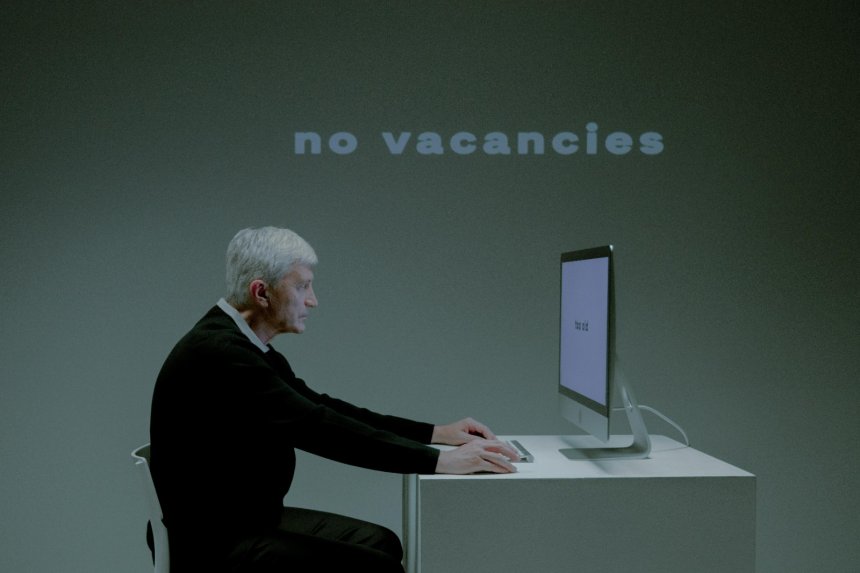My Wife Is Jobless: What Should I Do to Support Her and Our Marriage
When your wife is jobless, knowing how to support her matters. Here's practical advice for navigating unemployment together while strengthening your marriage.

Job loss is hard, no matter who in the marriage experiences it. When your wife loses her job or finds herself unemployed, the impact ripples through every part of your life together. Financial pressure builds quickly, but the emotional toll often weighs even heavier. She's likely dealing with feelings of inadequacy, anxiety about the future, and worry about letting you down. Meanwhile, you're trying to figure out how to help while managing your own stress about increased financial responsibility. This situation tests marriages in ways few other challenges do, but it also creates an opportunity to prove that your partnership can weather difficult seasons.

Understanding what your wife needs during unemployment matters more than having all the answers right away. Some husbands jump straight into fix-it mode, pushing their wives to apply for jobs immediately or offering unsolicited advice about their career. Others withdraw emotionally, unsure how to handle the tension. What works is showing up consistently with both practical support and emotional presence, recognizing that job loss affects more than just your bank account.
Understanding the Emotional Impact of Job Loss
Unemployment shakes a person's sense of identity and worth. Work provides structure, purpose, social connection, and validation beyond just a paycheck. When that disappears, your wife might struggle with feelings she doesn't know how to express. She may feel embarrassed about not contributing financially, even if you've never made her feel that way. Self-doubt creeps in, making her question her skills and value in the job market.
Depression and anxiety commonly accompany unemployment. She might sleep more than usual, lose interest in activities she previously enjoyed, or become irritable over small things. These aren't signs of weakness or character flaws. They're normal responses to a genuinely stressful situation. Recognizing these emotional patterns helps you respond with compassion rather than frustration when her behavior changes during this period.

The loss of routine also disrupts mental health. When she's not getting up for work, getting dressed, or interacting with colleagues, days start blending together. This lack of structure can intensify feelings of being unmoored and directionless. Understanding this helps explain why she might feel unmotivated or struggle to complete even simple tasks some days.
What Not to Do When Your Wife Is Unemployed
Before discussing helpful actions, it's worth noting what damages marriages during unemployment. Avoid making your wife feel like a burden or treating her differently because she's not working. Comments like "Well, I'm paying for it," when discussing purchases, even said jokingly, create resentment and shame. She's already aware of the financial imbalance without reminders.
Don't pressure her to take just any job immediately out of panic. While financial concerns are valid, pushing her into work that makes her miserable or undervalues her skills can lead to even worse outcomes. She might end up more depressed, quit quickly, or miss better opportunities because she's stuck in the wrong position.

Avoid broadcasting her unemployment to everyone you know without her permission. She deserves control over who learns about her situation. Telling your entire family or posting about it on social media strips away her dignity during an already vulnerable time. Check with her first about who she's comfortable knowing.
Stop comparing her job search to others' experiences or suggesting she's not trying hard enough. Comments like "My buddy's wife found something in two weeks" or "You should be applying to ten jobs a day" ignore individual circumstances and add pressure that rarely motivates. Trust that she wants employment as badly as you want her to have it.
Practical Steps to Support Your Wife
Financial planning becomes crucial when transitioning to a single income. Sit down together and create a realistic budget that accounts for your current situation. This shouldn't feel like you're controlling the money, but rather both of you taking stock of what needs adjustment. Identify which expenses are essential and where you can temporarily cut back without making life miserable.
Encourage her to file for unemployment benefits immediately if she's eligible. Some people feel ashamed about accepting unemployment, but that's exactly what the system exists for. These benefits can significantly ease financial pressure while she searches for the right position.
Take over some household responsibilities if you haven't been handling your fair share. Now that she's home more, there's often an unspoken expectation that she should manage everything domestic. This adds invisible labor to an already stressful situation. Continue splitting household tasks or even take on more to give her mental space for job searching and processing her emotions.

Help with practical job search tasks if she wants assistance. This might mean reviewing her resume, practicing interview questions, or researching companies in her field. The key word is "if she wants." Don't force your help or take over her job search. Offer support and let her accept what feels helpful while declining what doesn't.
Maintain some financial independence for her. If possible, ensure she still has access to money for small personal purchases without needing to ask permission. Having to request money for coffee or personal items infantilizes adults and creates unnecessary tension. A small discretionary amount preserves dignity during an otherwise dependent period.
Emotional Support That Actually Helps
Listen without immediately trying to solve her problems. When she expresses frustration about a rejection or anxiety about finances, resist the urge to jump in with solutions unless she specifically asks for advice. Sometimes she just needs to vent and feel heard. Validate her emotions by acknowledging how difficult this situation is rather than minimizing her feelings.
Remind her of her worth beyond employment. Her value as a person, as your wife, and as a contributor to your life doesn't disappear because she's temporarily out of work. Be specific about what you appreciate about her that has nothing to do with earning money. These reminders matter more than generic reassurances.
Maintain normal relationship patterns as much as possible. Continue date nights, even if they're at-home activities instead of expensive outings. Keep showing physical affection. Laugh together. Unemployment can make people feel like they don't deserve joy or relaxation, but maintaining connection actually helps mental health and relationship stability during stressful times like these

Encourage self-care without being preachy. Suggest going for walks together, cooking a nice meal, or doing activities she enjoys. Frame these as things that would make you happy to do together rather than things she "should" do to feel better. The difference in approach matters.
Be patient with the timeline. Job searches take longer than most people expect, especially for professional positions. Constantly asking "Did you hear back yet?" or "How many applications did you send today?" adds pressure without being helpful. Trust that she's doing everything that she can and check in periodically rather than daily.
Protecting Your Marriage During Financial Stress
Money tension destroys marriages faster than almost any other issue. When your wife is jobless, financial stress becomes a constant presence. Protecting your relationship requires intentional effort to prevent money from becoming a weapon or source of constant conflict.
Communicate openly about financial fears without blame. It's okay to express worry about bills or the budget, but frame concerns as shared challenges rather than problems she's causing. "I'm worried about how we'll cover the mortgage next month," invites problem-solving together. "Your unemployment is going to make us lose the house" creates shame and defensiveness.

Make financial decisions together. Major purchases or budget changes should involve both of you, maintaining the partnership dynamic rather than shifting to one person having all the control. This preserves equality even when income isn't equal.
Find free or low-cost ways to enjoy life together. Unemployment doesn't mean all joy must stop. Explore free community events, have picnics, watch movies at home, or revisit hobbies that don't require much money. Maintaining positive experiences together prevents the relationship from becoming entirely about stress and lack.
When to Suggest Professional Help
If her unemployment extends beyond a few months and you notice signs of serious depression, anxiety, or relationship strain, suggesting counseling makes sense. Individual therapy can help her process emotions and develop coping strategies. Couples counseling addresses how unemployment is affecting your marriage before resentment builds too deeply.
Frame therapy suggestions carefully. "I think therapy could help you feel better and develop strategies for this difficult time" lands better than "You need therapy because you're not handling this well." The first shows care, the second sounds judgmental.
Financial counseling might also help if you're struggling to manage on one income or facing debt. Professional guidance creates a path forward when you're both feeling overwhelmed by numbers and bills.
Conclusion
My wife is jobless what should I do becomes a less overwhelming question when you break it into manageable pieces. Supporting your wife through unemployment means showing up emotionally while handling practical realities together. It requires patience when you're worried, compassion when you're stressed, and partnership when it would be easier to shut down. This challenging season doesn't have to destroy your marriage. Many couples report growing closer after navigating unemployment together because they proved their commitment extends beyond financial contribution.
Focus on what you can control: your responses, your support, and your choice to remain a team. You can't make jobs appear or speed up hiring processes, but you can create an environment where your wife feels valued and supported while she works toward re-employment. That foundation matters more for long-term marriage health than any single financial setback. Remember that unemployment is temporary, but how you treat each other during difficult times shapes your relationship permanently.
Share
What's Your Reaction?
 Like
0
Like
0
 Dislike
0
Dislike
0
 Love
0
Love
0
 Funny
0
Funny
0
 Angry
0
Angry
0
 Sad
0
Sad
0
 Wow
0
Wow
0















